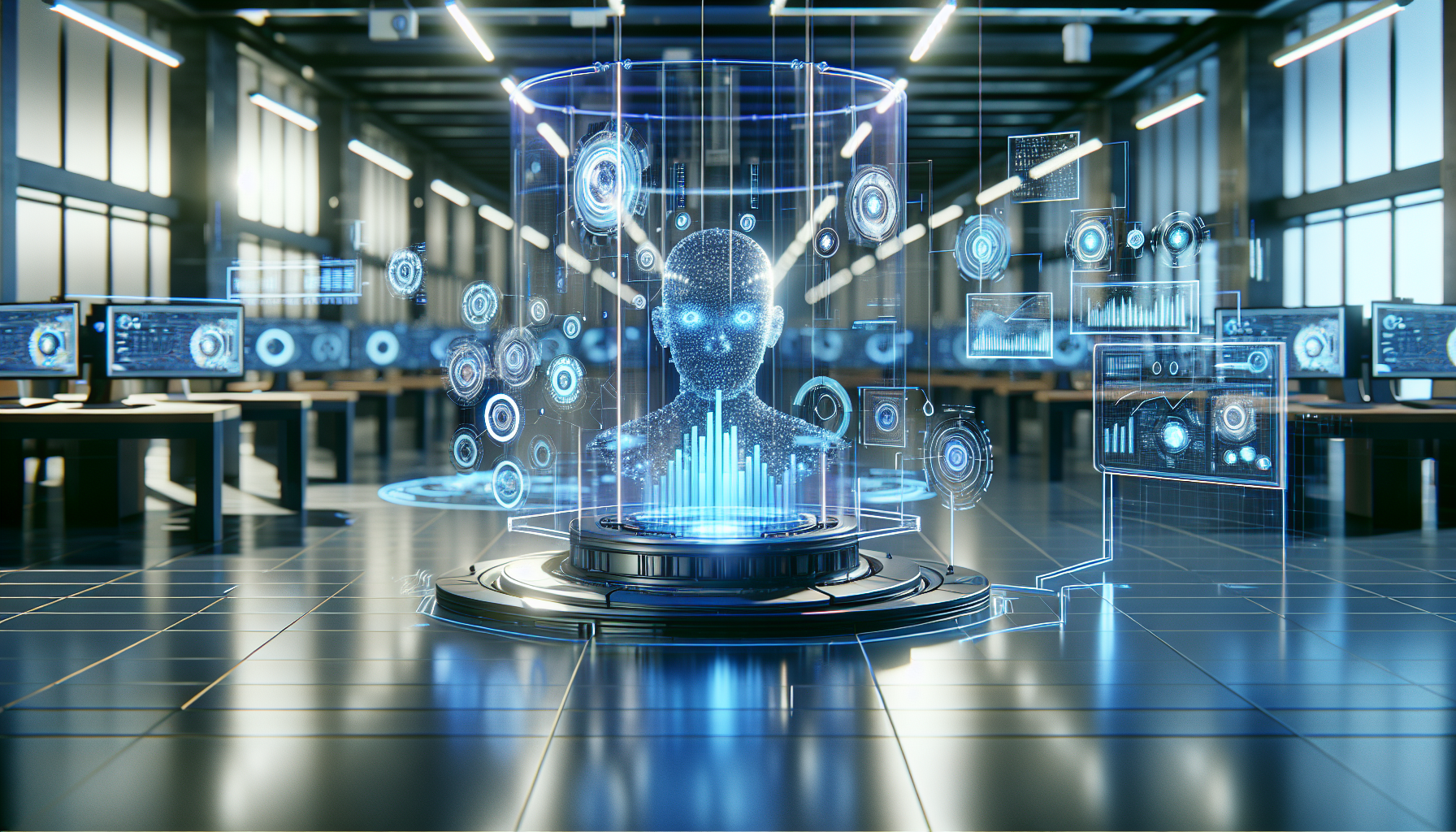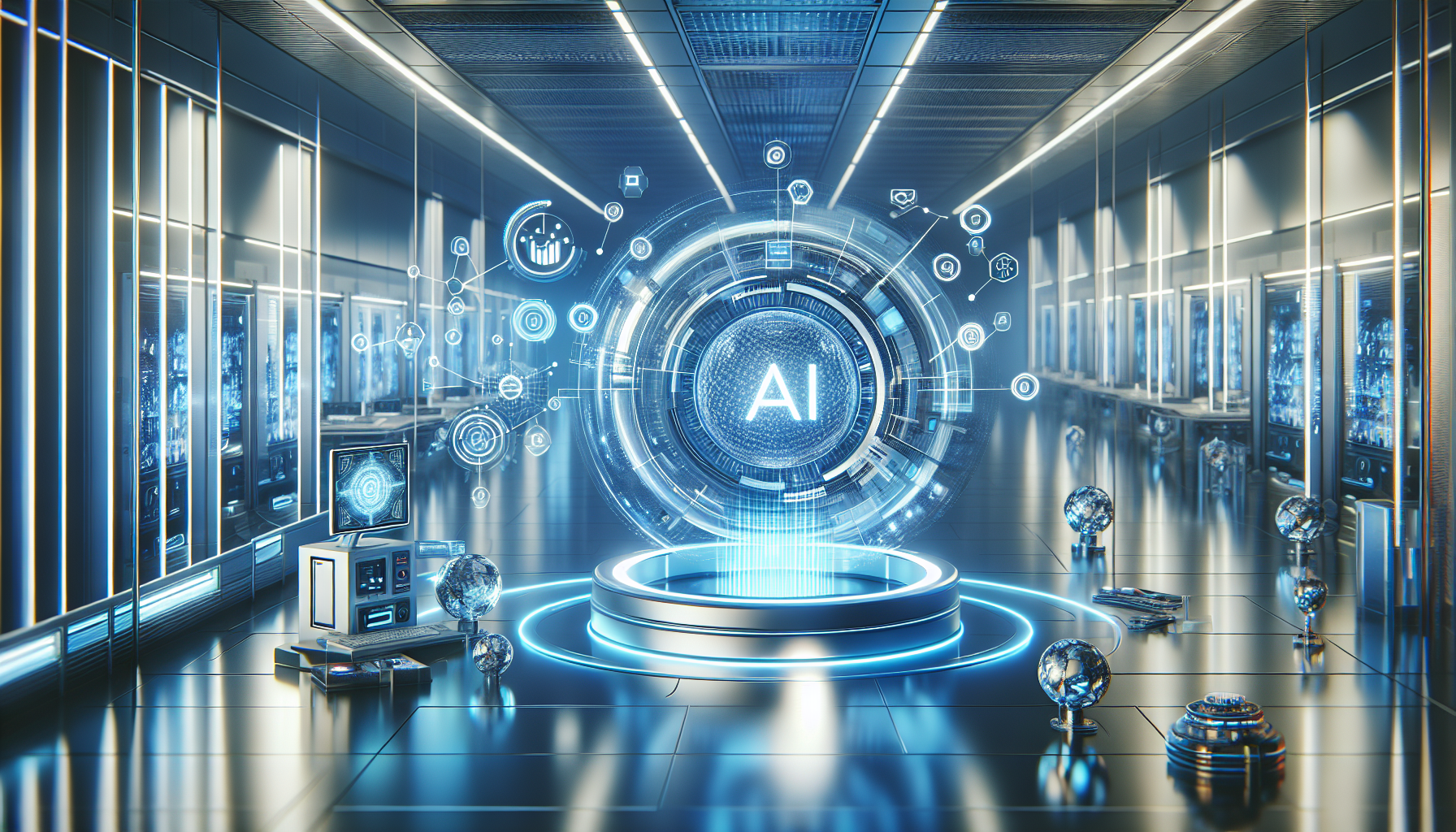
Is AI Ready to Take Over Space Command? Comparing Bots to Astronauts in a Galactic Showdown
October 5, 2025
When it comes to space exploration, humans have always been the stars of the show—quite literally. But as our ambitions reach for the galaxies far, far away, there's a new contender vying for the spotlight: artificial intelligence. That's right, folks, the brainy bots are gearing up to swap their humble Earth-bound existence for the vast, cold expanse of space. But is AI truly ready to trade its ones and zeros for stars and supernovae, or should we stick to the tried-and-true human approach, complete with Tang and freeze-dried ice cream?
Let's embark on a journey of cosmic comparison and see whether AI can boldly go where no bot has gone before—or if it should just stick to playing chess and recommending YouTube videos.
### Human Astronauts: The OG Space Cowboys
First up, let's tip our space helmets to the original adventurers of the cosmos: human astronauts. These intrepid explorers have braved the unknown armed with nothing but their wits, a plethora of scientific knowledge, and, let's face it, an impressive ability to hold it together in a vacuum-packed suit. Humans have been the face of space exploration, and there’s a good reason for it. They bring creativity, adaptability, and that quintessential human trait of occasionally winging it when things go awry—a skill that’s been surprisingly useful in the unpredictability of space.
However, humans come with their own set of cosmic complications. For starters, they need air, food, and a place to sleep. And let’s not forget the little things like gravity, which, despite its minor annoyances on Earth (looking at you, falling toast), turns into a major inconvenience when it’s absent. Plus, humans have this pesky habit of needing to return home, which can be a real drag on the fuel budget.
### AI: The Rising Star
Enter artificial intelligence, the rising star in the space exploration show. AI doesn’t need oxygen, food, or even a cozy place to rest. It can work tirelessly without coffee breaks or mutinies over a lack of Wi-Fi. AI systems can process data faster than you can say "Houston, we have a problem," making them ideal for navigating the vast and data-intensive environment of space. Need to predict the weather on Neptune or find the best path through an asteroid belt? AI’s got you covered.
Yet, for all its computational prowess, AI does have its limitations. For instance, AI lacks that human flair for improvisation. If a space mission hits an unexpected snag that wasn’t part of its programming, AI might just throw up its virtual hands and ask for a software update. Moreover, AI's sense of humor is notoriously lacking—try explaining a joke about light-speed to an AI and watch it respond with a blank stare or, worse, a syntax error.
### The Galactic Showdown: AI vs. Humans
So, who should we trust with our interstellar ambitions? Let’s consider some key scenarios.
**Scenario 1: The Unexpected Meteor Shower**
A surprise meteor shower threatens a space mission. Human astronauts might whip up an inventive solution on the fly—perhaps using duct tape, which seems to be NASA's answer to everything. AI, on the other hand, would analyze the trajectories, calculate probabilities, and execute a flawless, albeit unimaginative, evasive maneuver.
**Scenario 2: The Mars Colony**
Establishing a colony on Mars is no small feat. Humans bring the grit and determination to turn red dust into habitable homes, but they also bring a penchant for petty squabbles over who gets the window seat in the spaceship. AI would efficiently manage resources and logistics, ensuring everything runs like clockwork—until someone asks it to cook a Martian Thanksgiving dinner.
**Scenario 3: The Quest for Alien Life**
When it comes to detecting alien life, humans have the curiosity and the intuition to follow a hunch. But AI can process vast amounts of data from radio signals and atmospheric readings to spot patterns that even the most seasoned astronomer might miss. Of course, if AI does find E.T., it might just file it away as an 'anomalous data set' and call it a day.
### The Verdict: A Cosmic Partnership
In the end, perhaps the future of space exploration lies not in choosing between humans and AI, but in combining their strengths. Imagine a future where human intuition and AI efficiency work hand in hand—or rather, hand in mechanical claw—to conquer the cosmos. With humans’ knack for creativity and AI’s relentless precision, our dreams of exploring distant worlds could become a reality faster than you can say “beam me up.”
So, as we look to the stars and ponder our place in the universe, maybe the real question isn’t whether AI is ready for space, but whether space is ready for AI. After all, the final frontier might just be the perfect playground for a cosmic collaboration of humans and their digital counterparts. Who knows? Perhaps one day, we'll all be laughing at the same space jokes—humans, AI, and aliens alike.


